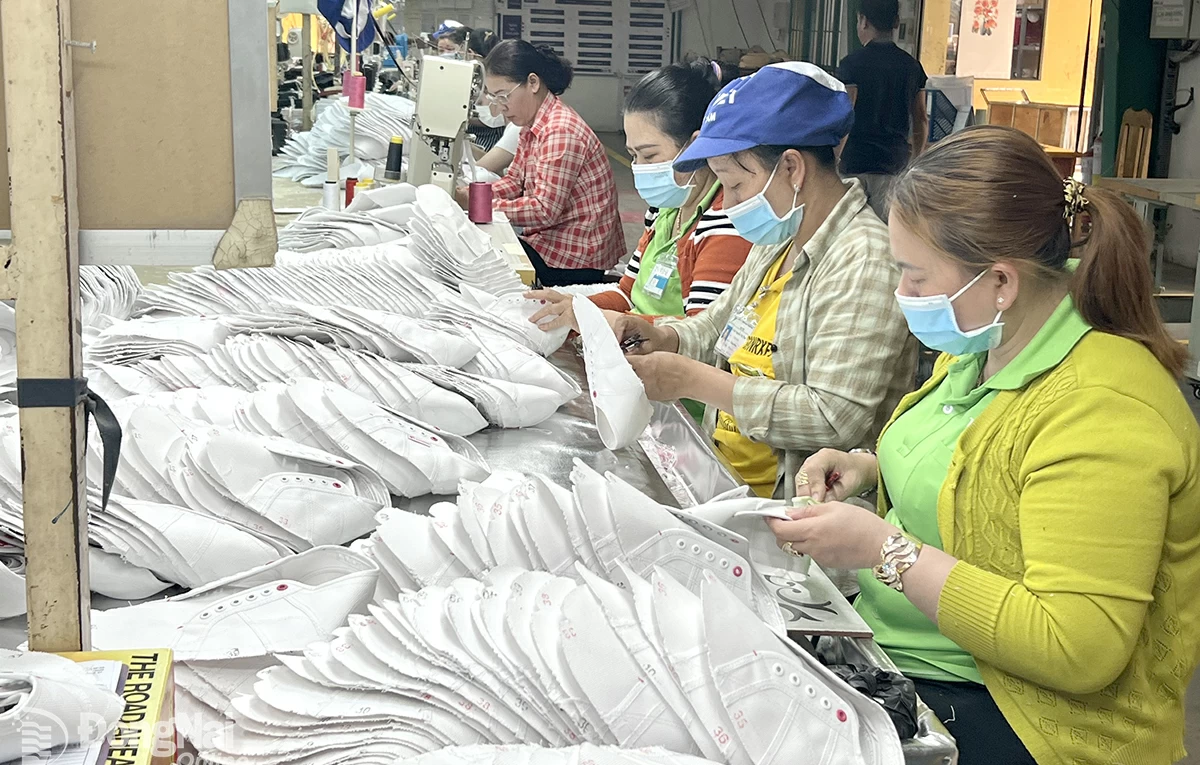 |
| Leather shoe production at Phu Thanh - Vinh Thanh Industrial Cluster (Nhon Trach District), one of five industrial clusters with a wastewater treatment system in the trial operation phase. Photo: H.Loc |
Vice Chairwoman of the Provincial People's Committee Nguyen Thi Hoang has just directed the Department of Industry and Trade to work with investors and localities to invest in industrial park wastewater treatment systems.
Only 5 industrial clusters have wastewater treatment systems
According to the Dong Nai Province Planning for the period 2021-2030, with a vision to 2050, by 2030, the province has 31 industrial clusters with a total area of nearly 1.9 thousand hectares (including 20 industrial clusters planned in the previous phase and 11 new clusters). Up to now, 16 industrial clusters have been established and have infrastructure investors, but only 5 industrial clusters have completed the construction of wastewater treatment systems and are in the trial operation phase.
Industrial parks with wastewater treatment systems include: Tan Hanh Ceramics (Bien Hoa city), Phu Cuong (Dinh Quan district), Phu Thanh - Vinh Thanh (Nhon Trach district), Tan An Construction Materials (Vinh Cuu district) and Xuan Hung (Xuan Loc district).
According to the Provincial Planning, in the period of 2021-2023, Dong Nai has 31 industrial parks, currently 16 industrial parks have been established, of which 12 industrial parks have approved environmental impact assessment reports and only 5 industrial parks have completed the construction of wastewater treatment systems.
Deputy Director of the Department of Industry and Trade Van Huu Dong said that in the industrial parks with establishment decisions, there have been 192 investment projects registered, of which 135 projects have been put into operation, creating jobs for about 33,700 workers. The enterprises are mainly in the fields of textiles, footwear, wood processing, mechanics and construction materials.
According to the Department of Industry and Trade, the operation of industrial parks has created infrastructure conditions for small and medium enterprises, contributed to relocating production facilities out of residential areas, formed a chain of links between enterprises inside and outside the industrial parks, thereby promoting sustainable industrial development of the province.
For localities, industrial parks help shift the economic structure towards increasing the proportion of industry and services and reducing pressure on the urban environment. When entering industrial parks, businesses are required to connect to a centralized wastewater treatment system, and are regularly monitored for emissions and wastewater by authorities.
However, according to Deputy Director of the Department of Agriculture and Environment Tran Trong Toan, the lack of wastewater treatment plants at operating industrial parks is a great pressure on environmental protection. Many industrial parks have untreated wastewater or wastewater that is not treated to standards before discharge, causing a serious risk of water pollution.
Vice Chairwoman of the Provincial People's Committee Nguyen Thi Hoang said that the lack of wastewater treatment systems in many industrial zones is a "gap" that needs to be urgently addressed. The province firmly maintains its stance of not trading the environment for economic growth.
Need community responsibility
According to Vice Chairwoman of the Provincial People's Committee Nguyen Thi Hoang, to control pollution, we cannot rely on just one sector, one level, or a few businesses. This is a comprehensive task, requiring the synchronous and drastic participation of the entire political system, businesses, and each citizen.
In the coming time, the province will direct the sectors to develop action plans to strictly control waste sources and strengthen environmental quality monitoring in urban areas, industrial parks and industrial clusters. Review and adjust policies to mobilize resources for environmental protection, especially in urban wastewater treatment, investment in industrial cluster infrastructure and support businesses to switch to green, clean and circular production models.
According to the leader of the Department of Industry and Trade, in 2024, the Provincial People's Committee has assigned the Department of Industry and Trade to pilot green industrial clusters in new industrial clusters including Quang Trung 1, Quang Trung 2 (Thong Nhat district) and Hang Gon (Long Khanh city). This model will be replicated if implemented effectively. However, the Ministry of Industry and Trade has not yet issued specific guidelines on criteria and procedures for evaluating green industrial clusters as proposed by the province.
In the immediate future, the Department of Industry and Trade proposes solutions with preferential policies to attract investment in technical infrastructure in industrial parks without investors. Pilot industrial parks following the green model will prioritize low-waste industries, using clean and high technology. In addition, environmental inspection and monitoring at enterprises will be strengthened; digital technology will be applied in environmental management, automatic data collection, and environmental database development will be built to serve forecasting and decision making.
Director of the Institute of Environmental Industry (Ministry of Agriculture and Environment) Nguyen Thi Thanh Phuong said that wastewater treatment infrastructure is not only a technical issue, but also demonstrates the government’s vision for sustainable development. Dong Nai is a leading locality in industrialization but cannot maintain its position if environmental “gaps” still exist in the planning.
"Filling this gap requires not only documents or plans, but also attractive investment mechanisms, improved management capacity, specific sanctions for industrial park investors, and the necessary science, technology, and finance for this field. Only when wastewater, emissions, and waste are treated transparently and effectively can industry go hand in hand with environmental protection," Ms. Phuong emphasized.
This environmental expert offers specific solutions: building new industrial parks and simultaneously converting to ecological industrial parks in the future; it is necessary to apply digital transformation and AI (artificial intelligence) in industrial management; suggesting that businesses convert technology to meet environmental sustainability requirements and gain competitive advantages.
Hoang Loc
Source: https://baodongnai.com.vn/kinh-te/202505/nhieu-cum-cong-nghiep-thieu-ha-tang-xu-ly-nuoc-thai-60d7f07/



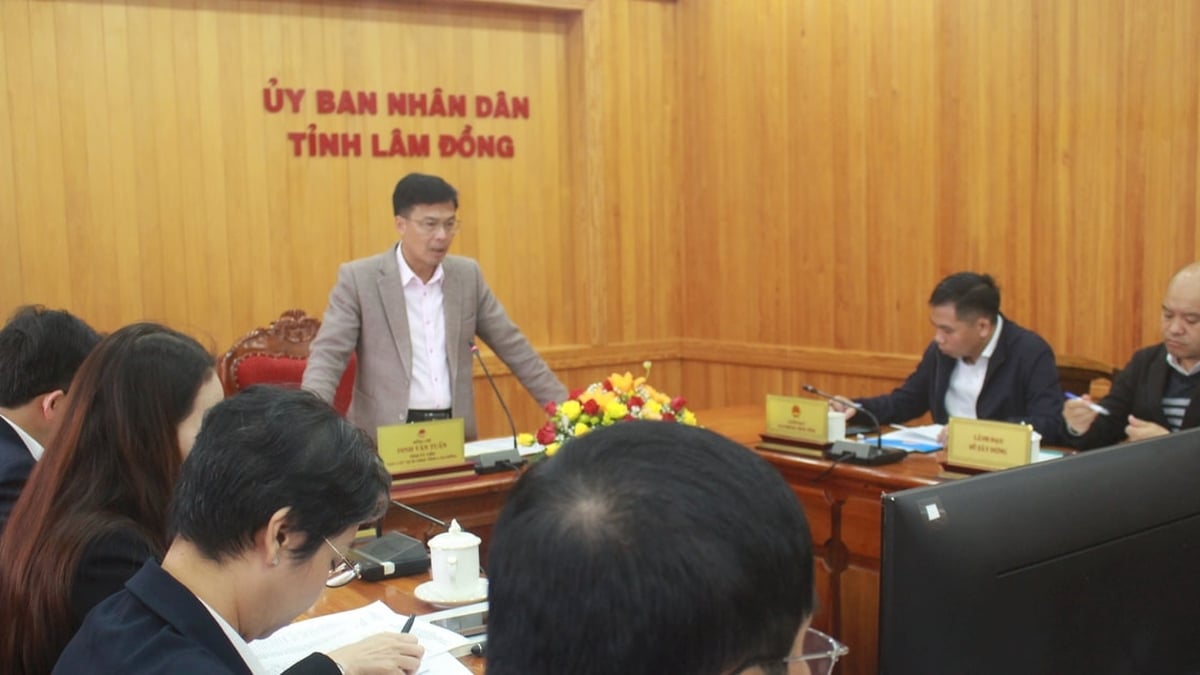

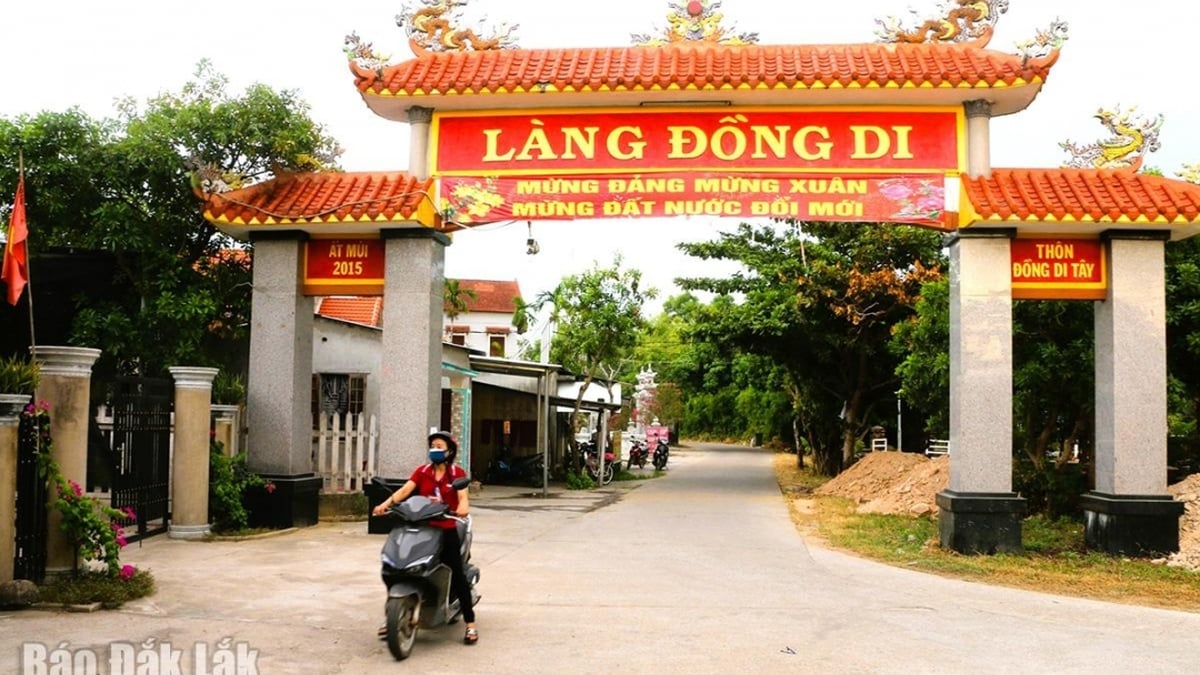
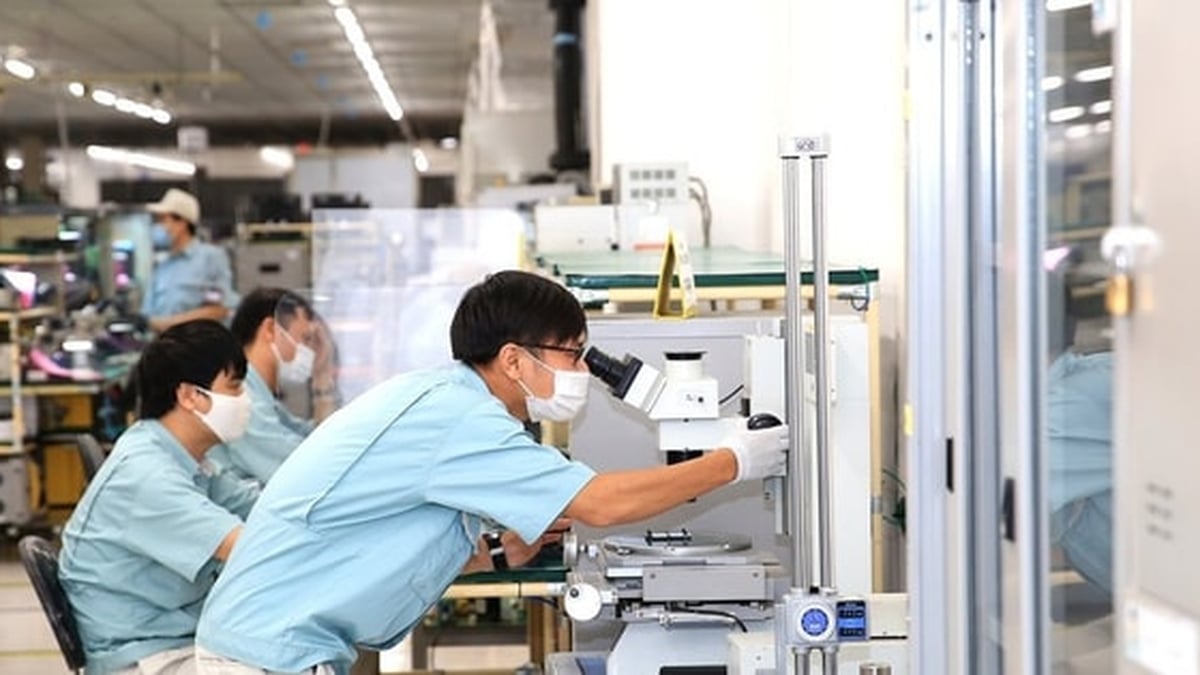
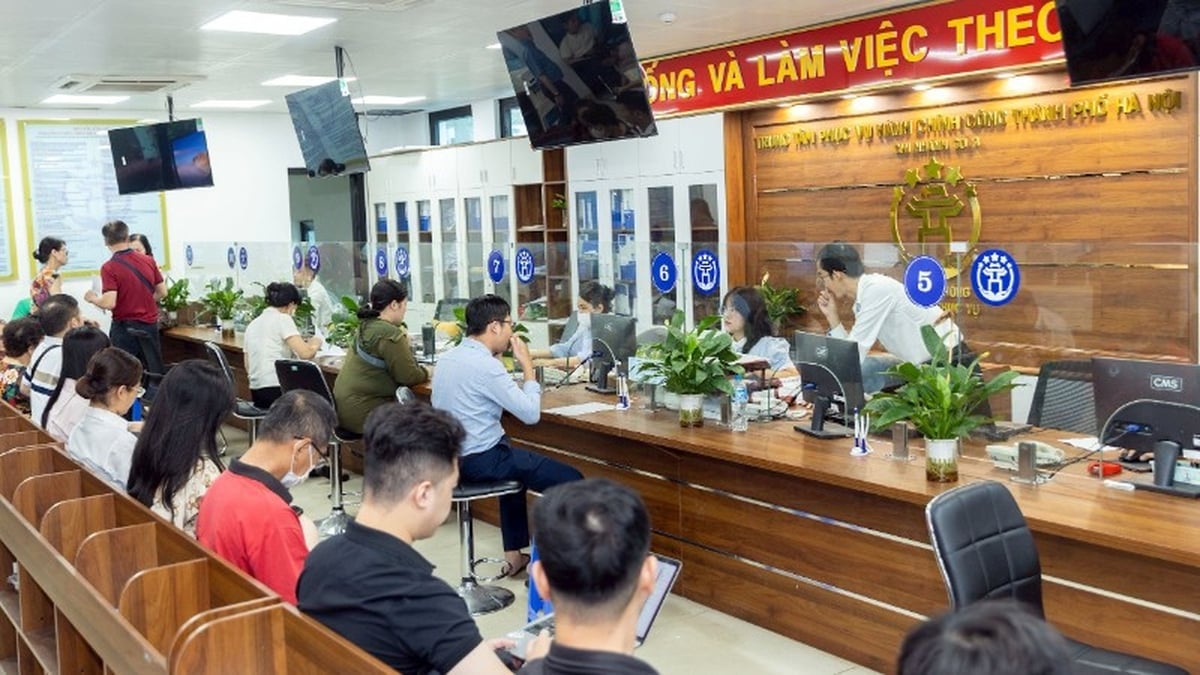
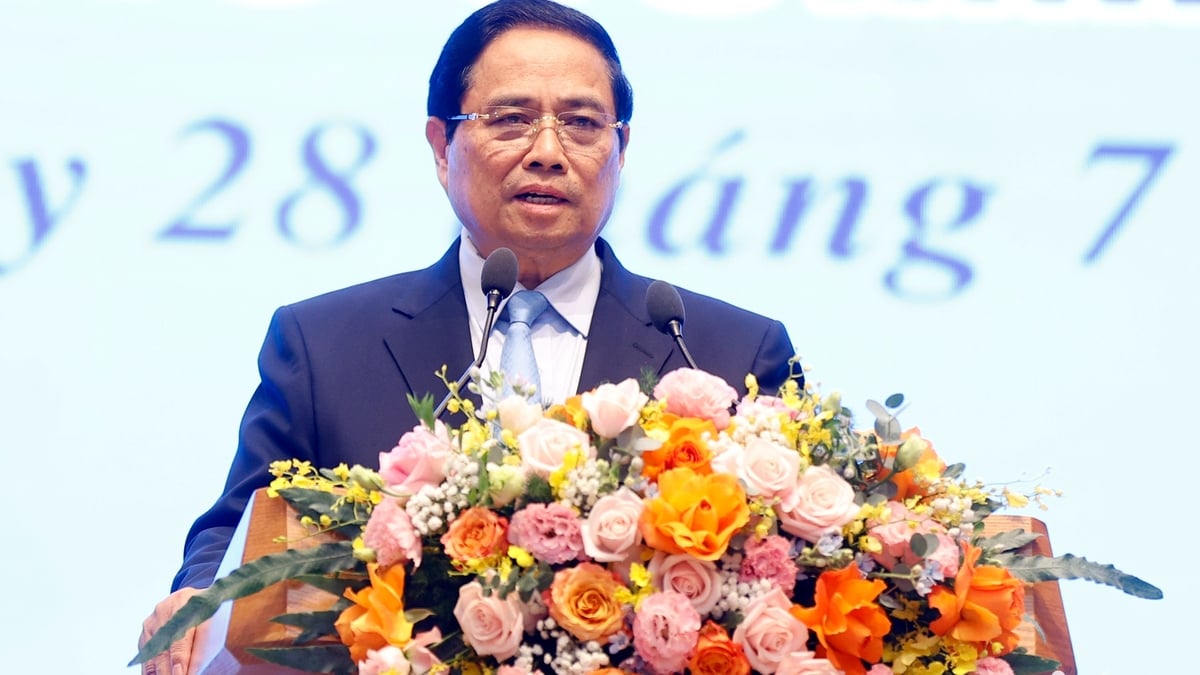
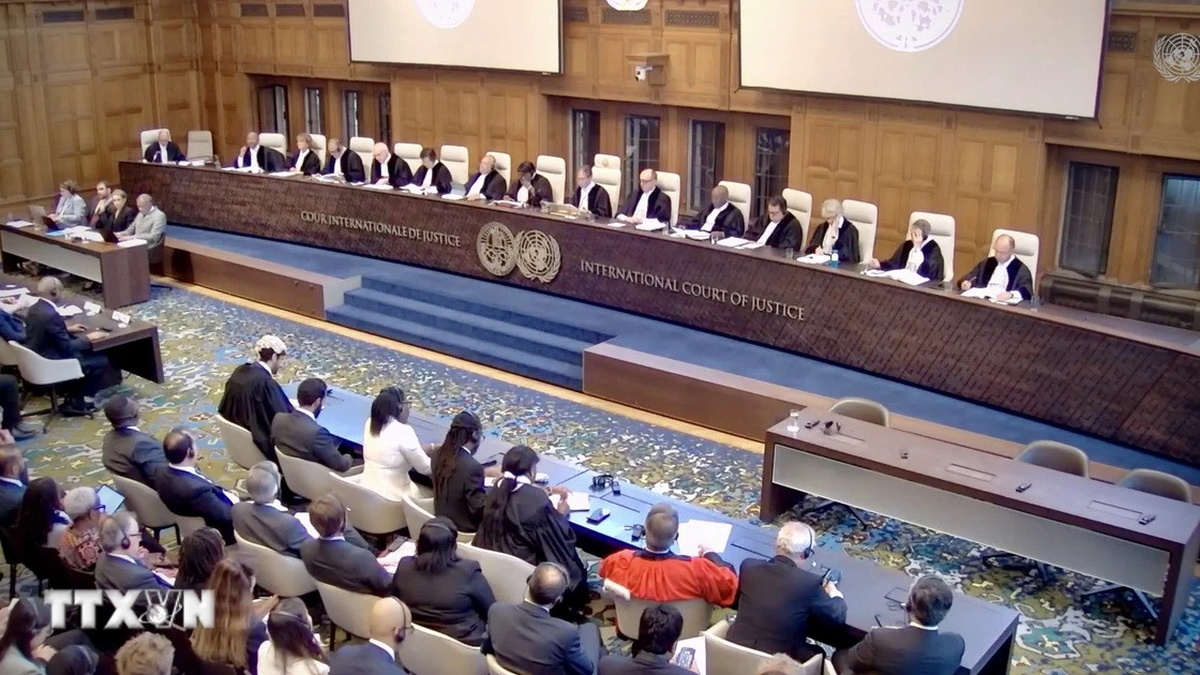















![[Photo] National Assembly Chairman attends the seminar "Building and operating an international financial center and recommendations for Vietnam"](https://vphoto.vietnam.vn/thumb/1200x675/vietnam/resource/IMAGE/2025/7/28/76393436936e457db31ec84433289f72)




























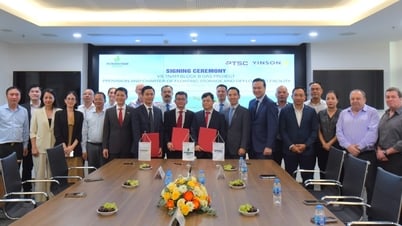












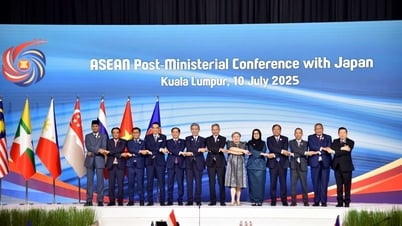

































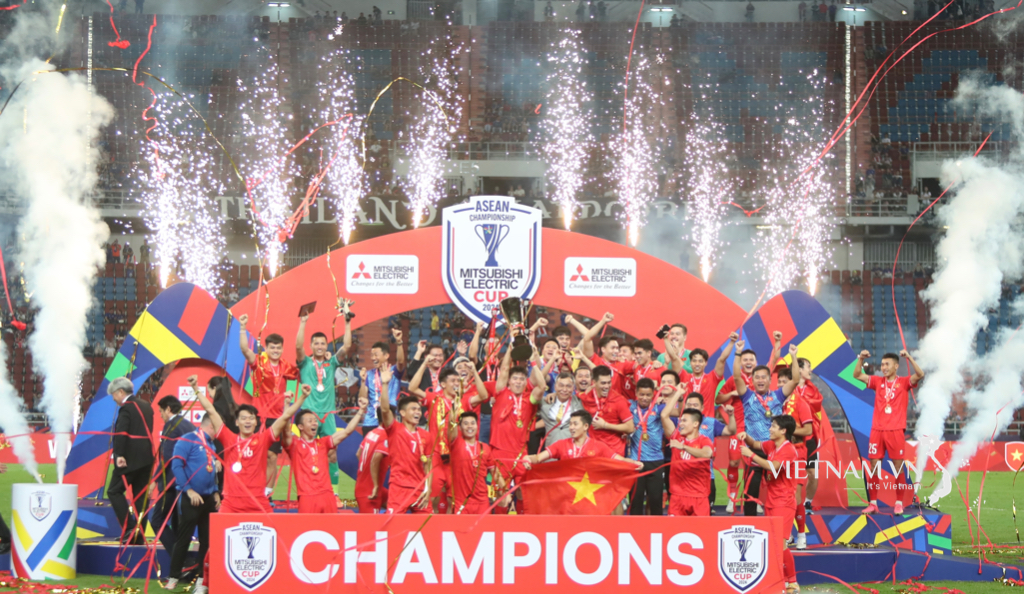
Comment (0)